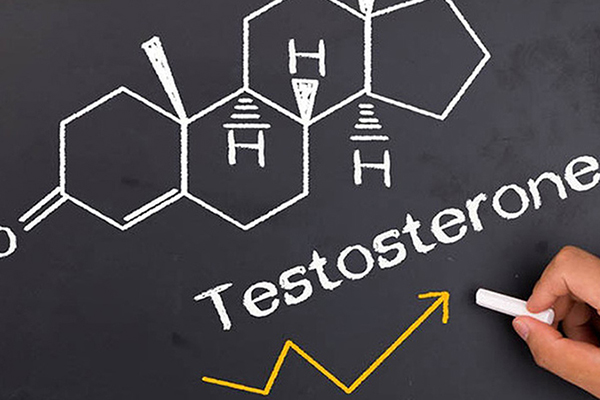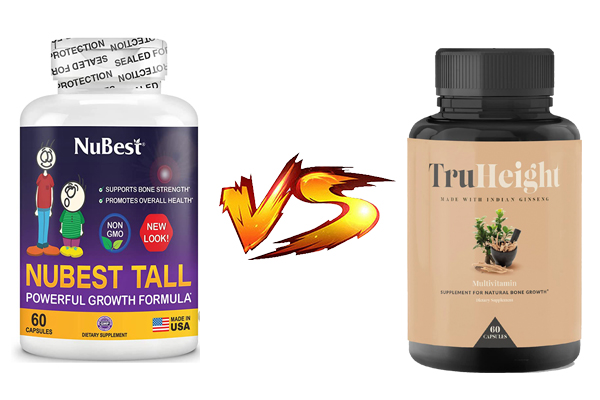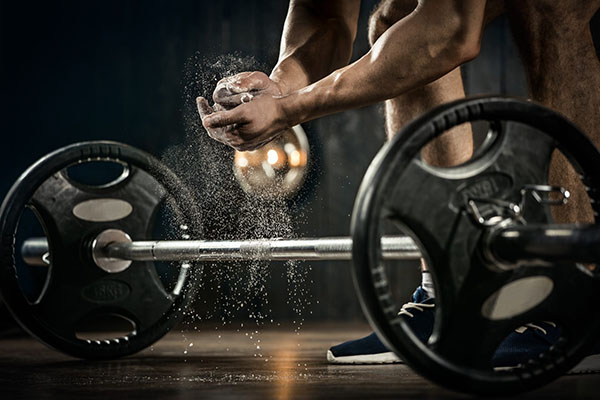In the labyrinthine realm of men’s health, the enigmatic dance between testosterone and well-being has long captivated the minds of researchers and scientists alike. However, amidst the intricacies of this relationship lies a particularly intriguing inquiry: Could there be a correlation between testosterone levels and height? This question, seemingly straightforward, delves into a complex tapestry of genetics, hormonal dynamics, and environmental influences that shape one’s stature. Yet, amidst these multifaceted determinants, where does testosterone stand? Is it conceivable that this hormone, often associated with masculinity and vitality, harbors the power to influence one’s vertical disposition? Join us on a quest to unravel the mysteries surrounding this captivating conundrum and shed light on the potential link between testosterone and stature.
What is testosterone?
Testosterone, often referred to as the quintessential male hormone, originates primarily within the testicles of men. This vital hormone plays a pivotal role in the development of unmistakably masculine characteristics such as the growth of facial hair and the deepening of one’s voice. Typically, during the phase of adolescence and the initial stages of adulthood, testosterone levels experience a robust surge.
However, as men reach the age of 30, a notable decline in testosterone levels becomes apparent, giving rise to significant physical transformations. Among these changes, a substantial decrease in bone density and muscle mass becomes a prominent concern

Why is it essential to maintain healthy testosterone levels?
Maintaining optimal testosterone levels plays a critical role in numerous physiological processes, each of which contributes significantly to overall health and well-being. Let’s delve into some of the key areas where testosterone exerts its influence:
- Muscle Mass and Strength Enhancement: Testosterone serves as a catalyst for the growth and development of muscle cells. Elevated testosterone levels translate into increased muscle mass and strength. Moreover, it plays a pivotal role in regulating protein synthesis, a fundamental process for achieving substantial muscle growth.
- Fat Distribution and Metabolism: Testosterone is instrumental in the distribution of body fat. It encourages the proliferation of muscle cells, which, in turn, ramp up calorie burning. This metabolic boost, facilitated by testosterone, accelerates fat burning, leading to a reduction in overall body fat. Notably, it also assists in redirecting fat from less desirable storage areas, such as the abdomen, to more advantageous regions, like the muscles.
- Safeguarding Bone Density and Strength: Maintaining healthy testosterone levels is essential for the preservation of bone density and the robustness of existing bone cells. Testosterone promotes the formation of new bone cells, contributing to both bone density and overall bone health.
- Optimizing Red Blood Cell Production: Testosterone isn’t limited to just muscle and bone; it also plays a crucial role in red blood cell production. Elevated testosterone levels stimulate the generation of new red blood cells and enhance their capacity to transport oxygen efficiently throughout the body. This translates into improved oxygen delivery to vital organs and muscles, supporting overall vitality and endurance.
In conclusion, the significance of sustaining healthy testosterone levels extends far beyond the realms of muscle and physique. It is a linchpin in a complex interplay of bodily functions that collectively contribute to one’s overall health and vitality. Prioritizing the maintenance of optimal testosterone levels is, therefore, a fundamental aspect of fostering a healthier and more robust life.
Does testosterone make you taller?
Testosterone can have an indirect influence on height during puberty. It stimulates the pituitary gland to produce growth hormones, which can contribute to an increase in height during the adolescent growth spurt. However, once an individual reaches their full adult height, further increases in testosterone levels are unlikely to lead to additional height growth. Therefore, while testosterone plays a role in height development, it doesn’t directly make you taller once you’ve reached your final adult height.
What happens if your testosterone is low?
Reduced muscle mass
Reduced levels of testosterone can cause a significant reduction in muscle mass because testosterone is deeply involved in the growth of muscular mass. Although low testosterone reduces muscle mass, it does not affect muscle strength or function, according to a 2016 analysis [1].
Reduced bone mass
Testosterone aids in bone volume maintenance and bone tissue production. Its volume may decrease as a result of low testosterone, which can make the bones more brittle [2].
Decreased energy levels
Low testosterone may contribute to decreased energy and exhaustion. Even after getting enough rest, a person could still feel worn out or lose interest in exercising or physical activities [3].
What are the Most Effective Exercises for Boosting Testosterone Levels?

When it comes to increasing testosterone levels naturally, incorporating the right exercises into your fitness routine can make a significant difference. Among the various exercises available, some stand out as particularly effective in promoting testosterone production and overall well-being. Let’s delve into these exercises in more detail:
1. Squats:
Squats are a powerhouse exercise that can lead to a substantial boost in both growth hormone and testosterone levels. Surprisingly, squats outperform leg presses in this regard, as revealed by a study conducted at the University of Texas. Despite using heavier weights during leg presses, participants reported 42% higher fatigue levels after performing squats. To execute squats effectively:
- Stand with your feet shoulder-width apart, facing forward.
- Ensure your knees are aligned directly above your feet.
- Lower yourself into a squat position with your thighs parallel to the ground.
- Maintain a natural arch in your back and engage your core.
- Reposition yourself to align your hips and knees without locking them.
2. Lunges:
Lunges are another excellent exercise for increasing testosterone levels, while also targeting various muscle groups in your lower body such as calves, glutes, quadriceps, hamstrings, hips, and core. Incorporating lunges into your routine can enhance your strength, posture, and overall physical appearance. Here’s how to perform lunges:
- Begin by standing upright with your legs hip-width apart.
- Take a step forward with one foot, advancing about 2-3 feet or a comfortable distance.
- Bend both knees to approximately 90 degrees, ensuring your front knee doesn’t extend beyond your toes and your other knee doesn’t touch the floor.
- Hold this position for 3 to 6 seconds.
- Return to your starting position by pushing off with the foot you stepped forward with.
- Repeat this movement for three minutes.
3. Push-ups:
Push-ups offer a multitude of benefits for men, with a notable increase in testosterone production being one of the most significant advantages. To perform push-ups effectively:
- Position yourself with slightly bent arms, avoiding locking them, and support your lower body with your toes.
- Place both hands on the floor.
- Lower your chest until it’s nearly touching the floor while maintaining a straight body.
- Take a breath, pause briefly, and then push yourself back to the starting position.
- Repeat this motion.
Incorporating these exercises into your regular workout routine can not only help you achieve better physical fitness but also support healthy testosterone levels, ultimately contributing to your overall well-being
What foods help boost testosterone levels?
Several medical procedures, especially in younger men, might raise low testosterone levels, but dietary and lifestyle changes can also encourage the body to produce more testosterone. We will list the best foods for increasing testosterone levels below.
Oysters
The highest amount of zinc per serving is found in oysters, which is crucial for the health of sperm and the reproductive system. Severe zinc deficiency in men can cause hypogonadism, a condition in which the body does not create enough testosterone. Moreover, they could endure impotence or delayed sexual development.
Pomegranates
Research from 2012 indicates that eating pomegranates may raise testosterone levels in both men and women. By consuming only pure pomegranate juice for fourteen days, the testosterone levels in the saliva of sixty healthy adults were monitored three times daily. Both male and female subjects showed an average 24 percent increase in salivary testosterone levels after the trial. Also, their blood pressure and mood both improved [4].
Fortified plant milk
A 2011 study found that testosterone levels in men rise in response to vitamin D [5]. Although spending time outdoors in bright weather is one of the best methods to absorb vitamin D, not everyone is able to do that daily. The vast bulk of the vitamin D in the typical American diet comes from fortified foods. Therefore, you can drink fortified plant milk to boost testosterone.
Leafy green vegetables
Magnesium is a mineral that is abundant in vegetables like spinach, Swiss chard, and kale and may help the body produce more testosterone. Researchers from a 2011 study discovered that taking magnesium supplements for 4 weeks caused both inactive volunteers and athletes to have higher testosterone levels [5].
In conclusion,
While numerous factors contribute to the decline in testosterone levels, it’s essential to acknowledge that testosterone naturally decreases with age. However, when individuals begin to exhibit symptoms of significantly low testosterone levels, it is imperative to seek medical attention. Fortunately, there are various natural ways to support and potentially enhance testosterone production in the body.
One dietary approach involves incorporating specific foods known for their potential to stimulate testosterone production. Olive oil, oysters, nutrient-rich leafy greens, and fatty fish are among the dietary choices recommended to encourage the body’s natural testosterone synthesis. These foods offer essential nutrients and compounds that can support hormone balance.
Additionally, incorporating regular exercise into your routine can be a valuable strategy for boosting low testosterone levels. Engaging in strength training, high-intensity interval workouts, and aerobic exercises can help optimize hormonal function and promote the production of testosterone.
In summary, it is crucial to adopt a multifaceted approach to address low testosterone levels effectively. Consultation with a healthcare professional is the first step to identify and manage any underlying issues. Combining a nutritious diet featuring testosterone-boosting foods, along with a regular exercise regimen, can play a significant role in supporting healthy testosterone levels as individuals age. Remember, a holistic approach is often the key to achieving and maintaining hormonal balance.
- Related post: How To Grow Taller After Puberty?



